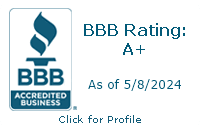How to make constraints like time, money, people or experience, your competitive advantage.

I recently revisited a topic in a book I've always liked, Rework by Jason Fried and David Heinemeier Hansson. The topic is "Embrace constraints" – here is its opening paragraph:
"I don't have enough time/money/people/experience." Stop whining. Less is a good thing. Constraints are advantages in disguise. Limited resources force you to make do with what you've got. There's no room for waste. And that forces you to be creative." (page 67)
Looking at the first sentence, I'm guilty of having said something like that many times over the years! On the flip side, I've also heard it many times over the years – from staff, clients, potential clients, referral sources, friends, and family.
Identifying a "Whine"
The book's authors consider that first sentence to be "whining." Why might that be? After all, the sentence could contain a true statement of facts. So what converts it from a "statement of facts" to a "whine"? Something that can't be communicated in writing – the person's tone of voice.
When I whine, my voice changes – it has a higher pitch, is slightly louder than my normal voice, is uttered with a sense of incredulousness, and is tinged with dismay at having insufficient resources to do the quality of work I'd like to do. You know the tone of voice – it's what you hear from a teenager who doesn't want to do something.
I've heard the voice many times. Sometimes it's directed at me, and sometimes it's shared with me by someone who has used – or would like to use – the sentence with the person constraining the person's resources.
Another Type of Whine
There's another form of whining, which might be defined as "discussing a problem with someone who can't do anything about it." I've both initiated and heard many such discussions. The only things which might keep such a discussion from being "whining" is whether the person initiating the discussion:
- limits the discussion to just the objective facts,
- shares some solutions and approaches already devised with the other person,
- believes the other person can see a solution or devise an approach better than the ones shared, and
- avoids the words "I don't have enough," since they are an opinion.
A statement of facts is "My budget just got cut by 10%, without any corresponding reduction in my performance goals."
A whine is "I don't have enough budget to meet my performance goals."
See the difference?
Here's the thing – whining doesn't change anything. Your budget is still cut, your prospect still turned you down, your employee still quit, and you still have an inexperienced staff.
Re-frame Your Thinking
Reality hasn't changed, so that's why the authors suggest reframing the way you see things. I know this all too well. Over the last year or so, the recession has finally caught up with my firm, and my resources have been constrained much more than I have liked. Still, limited resources forced me to take a hard look at my firm's cost structure and the way we do things, and make some changes I would not have otherwise made. Read how personal accountability can help
Become Leaner & More Effective
My firm is now the leanest it's been since the early 2000's. While there have been some tough changes to make, my staff joined me in  reviewing how they use budget dollars – and they've come up with more effective ways to use fewer dollars! Thus, we are not only leaner – we're more effective, too.
reviewing how they use budget dollars – and they've come up with more effective ways to use fewer dollars! Thus, we are not only leaner – we're more effective, too.
Reflecting on these experiences, I see great truth in the authors' words. My staff and I were forced to get by with less – we;
- streamlined processes, eliminated some internal meetings that had outlived their usefulness,
- reallocated our marketing budget from advertising to activities designed to proactively touch clients and others,
- and leveraged tasks to as low a level as possible.
To make sure these changes stick and address any "gotchas" popping up from these, we also devised processes and began a new monthly meeting to ensure the changes stick, and to objectively evaluate the firm's efficiency and effectiveness in all areas.
Choose the Lazy Person
All of these changes brought to mind something my grandfather had told me – "If you want something done as quickly and as easily as possible, don't ask a hard-working person – ask a lazy one instead. The hard worker will immediately set off on the task using the most obvious approach. The lazy worker will study the problem, think about different ways to solve it, and then choose the easiest one." He then pointed to two workers in his furniture plant – I knew both, and one was hard working (like me), and the other I viewed as "lazy."
Hearing this as a teenager, I didn't realize the great truth in what Grandpa told me. Both workers would get to the same result – however, the lazy person came up with the more efficient approach. I now view the "lazy" person less as "lazy" and more as "creative" – after all, that worker came up with a more efficient solution that could be easily repeated by others. Perhaps we should follow the advice to "Don't just do something – sit there" instead of our natural inclination to "Don't just sit there – do something."
The Value of "Less" & "Constraints"
In my recent situation, my staff and I lived out everything in the final three sentences quoted above – we were creative, we made decisions based on facts, we cut waste, we addressed reality, and we made do with what we had. What we didn't realize at the time were the advantages of "less" and "constraints." Read some of Todd's book reviews for more insights
The next time you find yourself in a situation of "less" and you're about to whine – STOP! Don't do it! Take a deep breath and remember this article. Change your mindset to get comfortable with "less is a good thing," and take a few minutes to devise several creative solutions to "less." Only then should you get started and rise to the challenge you've been given. Remember – none of this will happen until you embrace constraints.
Sincerely,

Todd L. Herman





